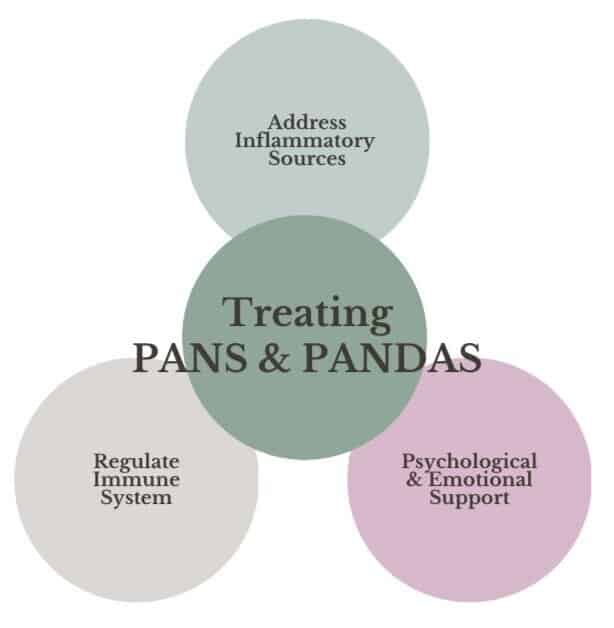
Best awareness on panda Neurologist will be described in this article. PANS Awareness Day brought together families and healthcare professionals. The goal of the day is to raise awareness and understanding of an illness that, despite growing knowledge among professionals, is still mostly unknown.
Pediatric autoimmune neuropsychiatric disorder associated with streptococcus (PANDAS) and PANS, or paediatric acute-onset neuropsychiatric syndrome, are two long-standing conditions that can produce abrupt changes in behaviour.
Top 10 Things A Panda Neurologist Should Know
In this article, you can know about Panda Neurologist here are the details below;
When a strep infection prompts an immune response that leads to inflammation in a child’s brain, Panda Neurologist develops. OCD, anxiety, personality changes, and other behavioural abnormalities appear rather suddenly as a result of the inflammation. The misdirected immune response in PANS can be caused by a variety of things, including allergies, an environmental factor, or another infection. In reality, PANDAS is a subtype of PANS, although both disorders cause the same upsetting behavioural signs in a kid and are frequently misdiagnosed. Also check vitamins for crack knees
Pediatric Neurologist Dr. Rosario Trifiletti of the PANDAS/PANS Institute was interviewed by Scary Mommy. She clarified these illnesses and provided parents with the ten things they need to know about PANDAS/PANS.
Symptoms of PANDAS/PANS can vary greatly, but there are symptoms you should look out for.
Obsessive-compulsive disorder (OCD) or anxiety that occurs suddenly or over a short period of time is one of the most prevalent symptoms of PANDA/PANS. Panda Neurologist, however, can manifest itself in a number of different ways, such as anorexia or severely restricted eating, tics, emotional abnormalities, mood changes, regressions, or a decline in academic ability.
PANDAS/PANS is not new
The history of PANDAS/PANS can be traced back to England in the 1700s, but it wasn’t until a doctor studied a different but related rare condition in the 1990s that the disorder was first identified. The concept of PANS was formally introduced in 2012.
PANDAS/PANS is contagious
Even if the underlying infection, such as strep throat, may be communicable, the inflammation it generates and the resulting behavioural changes are not.
PANDAS/PANS is treatable
The initial step in treating PANDAS/PANS is to treat the underlying infection, typically with antibiotics, or the cause of the immunological response. Finding the underlying infection or source of inflammation can be challenging, especially if PANS is not first recognised as the cause of the symptoms or behavioural problems.
According to the PANDAS/PANS institute website, simple non-steroidal anti-inflammatory drugs, such ibuprofen, can oftentimes decrease the symptoms of PANS, but additional antibiotics or antiviral medications are frequently required.
In his twenty years of treating Panda Neurologist, Dr. Trifiletti has noticed that the treatment has altered as medical professionals become more aware of the risk that long-term, high-dose antibiotic use poses to the gastrointestinal system. However, some kids do require longer-term, low-dose preventative antibiotic medication in between flare-ups to manage symptoms.
We Don’t know why some children are susceptible, but experts have theories
We still don’t understand why certain kids have an immune response that is misdirected and results in inflammation of the brain. According to Dr. Trifiletti, one widely held opinion is that children who have PANDAS/PANS have some degree of immunological weakness, making them more susceptible to infections. We’re currently researching extremely hard to uncover genes that predispose to PANS, says Dr. Trifiletti. Each of these genes relates to the immune system.
Getting a diagnosis can be tricky, but not impossible
Not every paediatrician is familiar with Panda Neurologist yet or fully comprehends it. As a result, behavioural changes may be attributed to psychiatric conditions, leading to the prescription of pharmaceuticals like SSRIs or antipsychotics. However, it’s important investigating whether Panda Neurologist is present if parents see these behavioural changes over night.
A further obstacle to diagnosis is the lack of a conclusive test for PANDAS or PANS. Blood work, bacterial and viral testing, and a diagnostic tool known as the Cunningham Panel, which assists clinicians in the diagnosis of autoimmune neuropsychiatric disorders, may be used. According to Pandasnetwork.org, “clinical diagnosis [is] based on the collection of signs, symptoms, medical history, and laboratory findings that cannot be explained by any other neurological or medical disorders.”
Safety is the most important thing
The child’s safety comes first in the case of severe psychiatric problems, such as intrusive thoughts that may even be suicidal or unsafe restricting eating. Dr. Trifiletti exhorts parents to make certain that the child is in a secure environment. After then, it’s worthwhile to conduct further research to see if this region of the brain is inflamed due to strep or another illness that is still ongoing.
Family Supports is crucial
Dr. Trifiletti recommends that both parents attend the initial appointment and support treatment, particularly if preventative, longer-term treatment is necessary. He writes on his website that “PANDAS affects the entire family dynamic.”
PANDAS/PANS is not a life condition
According to Dr. Trifiletti, the onset of PANDAS/PANS can happen in infants as young as one or adults as old as 21, but it most frequently occurs in youngsters between the ages of 6 and 10 years old.
PANDAS/PANS often disappears after puberty is attained, which occurs at roughly 16 or 17 years of age, as soon as growth is finished. Also check mental health counseling
Trust your gut
Dr. Trifiletti emphasises that if parents detect a rapid change in their child, whether that change be OCD, anxiety, or some other sudden or drastic behaviour change, they should take Panda Neurologist into consideration. His parting piece of advise was to go with your intuition.




